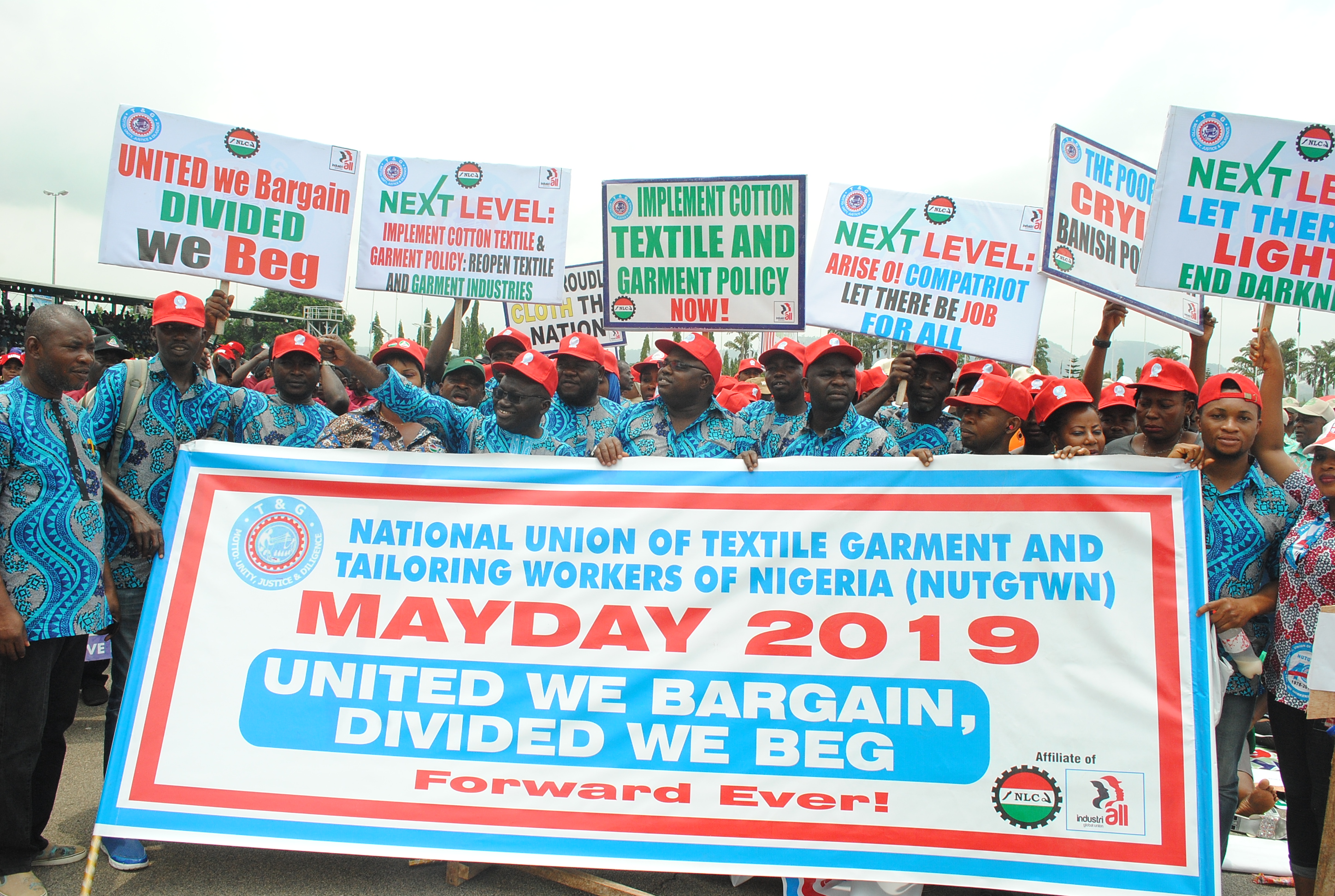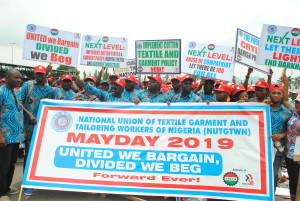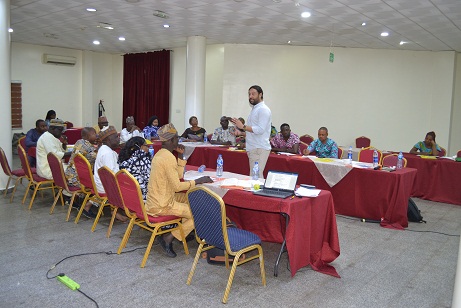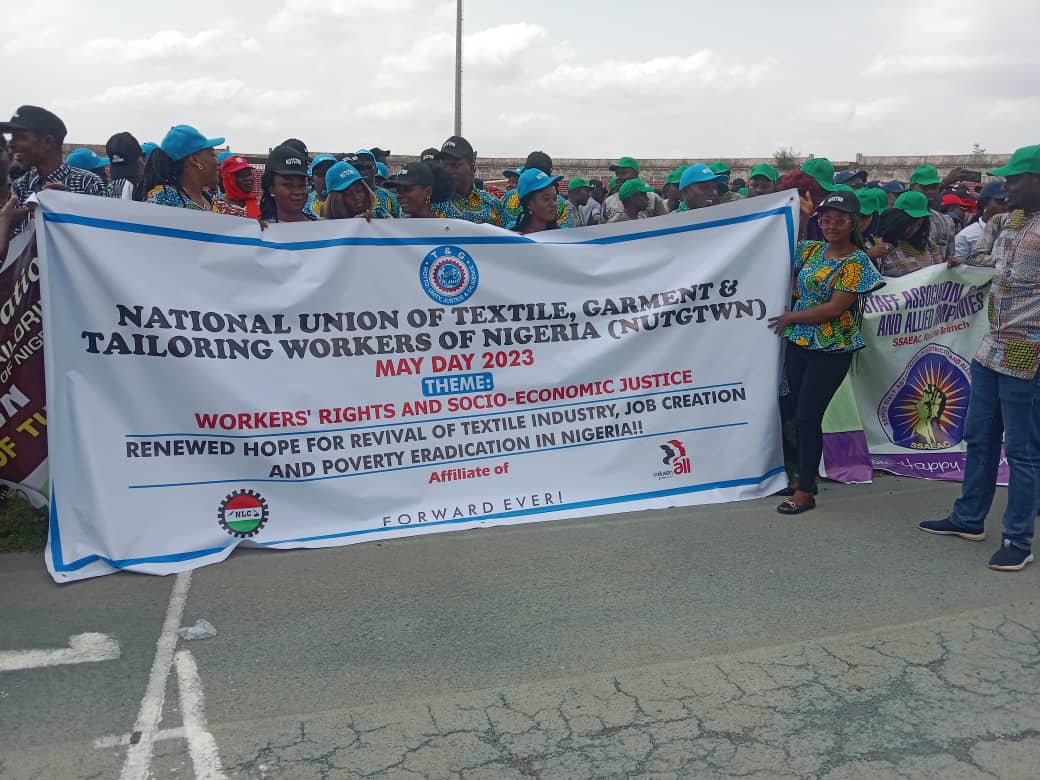
So workers matter after all? Thanks to May Day! The information overload about the importance of labour as critical factor of development during the last mid week May 1st celebrations in Nigeria and around the world could make volumes of paper backs in many bookshops and libraries. Witness Vice President Yemi Osibajo who represented President Buhari at the May Day parade ground in Abuja: “the welfare and well-being of Nigerians who render honest services every day is the true benchmark of federal government’s commitment to social justice and dignity of all Nigerians”. Working women and men matter in our daily lives such that we just must celebrate dignity of labour every day.
Do not get me wrong. Every day can’t be public holiday otherwise there would not be workers again. Get me right; let’s appreciate every day the tailors who make our fabrics, teachers who “bake” future generation through education, media workers who make global information overload readily available and comprehensible, working men and women in police and army uniforms who protect us, transport workers who take us to and from home, medical workers who struggle to keep us alive, construction workers who make roads and path ways passable. Very few nations “underrate humans” like Nigeria. Thanks to May Day which since 1981 has mainstreamed labour as a partner in national development.
In his celebrated book, “MY VISION, Challenges in the Race for Excellence”, Sheikh Mohammed bin Rashidi Al Maktoum, the Vice President of the United Arab Emirates (UAE), and constitutional monarch of Dubai observed (and I agree with him!) that; “Human beings are the most precious assets of all nations and the most important factors in the progress of countries. We consider the development of human resources as a gauge for the development of our country.” The American President , Theodore Roosevelt observed that “It is only through labor and painful effort, by grim energy and resolute courage, that we move on to better things.” The legendary Pastor Martin Luther King, Jr. noted that : “No work is insignificant. All labor that uplifts humanity has dignity and importance and should be undertaken with painstaking excellence.”
I searched in vain for some quotable quotes about human resources from Nigeria’s leaders. If we don’t name and celebrate labour, we can hardly turn it into national asset which it is. In 2009 there was a dramatic 35% crash in stock prices. There was a mass frenzy to save the market. Trillions of Naira was expended by the CBN to rescue and recapitalize six banks in 2010! In 2014, almost 69 per cent of all candidates who sat for West African School Certificate examinations failed to have 5 credits including English and Mathematics! Indeed only 31.2 percent (i.e.529, 425,000 out of 1,692,435,000 candidates) had credit pass in 5 subjects including English and Mathematics in the 2014 as against a 36.57 percent in 2013, and 38.81 percent in 2012. This free fall in the value of present and future human resources of Nigeria has not shocked the nation beyond the ordinary. Since the democratic dispensation in 1999, there have been a dozen Presidential Executive Orders on the Ease of Doing. None on the Ease of Work or Ease of Living! Let’s know that labour is as important as oil and gas. Let’s be worried as we manage labour as much as we (resource!) control oil and gas). On the eve of May Day, Labour Minister Chris Ngige stirred up a controversy when he casually celebrated trafficking in Nigerian doctors as sign of surplus labour and even a source of foreign exchange for the nation. What happens to nation-building when Nigerian workforce become hunters and gatherers of American dollars and British pound Stocks? Nigerian workers should not be new modern slaves for Europe and America. One time Minister of Health Dr Onyebuchi Chukwu, once disclosed that more than 5000 Nigerian trained medical doctors were practicing in the United States of America! Nigeria has just some 600 paediatricians to care for its over 40 million children compared to the United Kingdom’s over 5,000 for 20 million children. Why must we export doctors when we lack them at home? Why are we eager to control oil revenue and remain indifferent to the New York Times’ report according to which “America Is Stealing the World’s Doctors”, many of them Nigerians? The formation of Nigeria’s human capital is of great importance in the coming years if Nigeria wants to be part of the leading economies in 2020. According to Human Development Index Nigeria is ranked 156 among 187 countries meaning that Nigeria is considered to have low level of human development. According to the National Commission for Non-formal and Mass Education Commission (NCNME) some 64 million Nigerian adults are illiterates (more than the population of South Africa!) . A country of illiterates is a one shame turned into a tragedy. Countries with less endowment like Zimbabwe and Cuba had archived literacy rates of 90.70 and 99.9 per cent respectively. Why would the world’s 13th oil producing nation that Nigeria is slide back into mass ignorance and underdevelopment.
Local government edits and state laws must make primary schooling compulsory, criminalize and penalize parents that do not allow their wards to go schools in the 21st century. To appreciate human resource we must motivate the labour which constitutes the great resource. We must ensure workers are paid well and on time.
Issa Aremu mni







